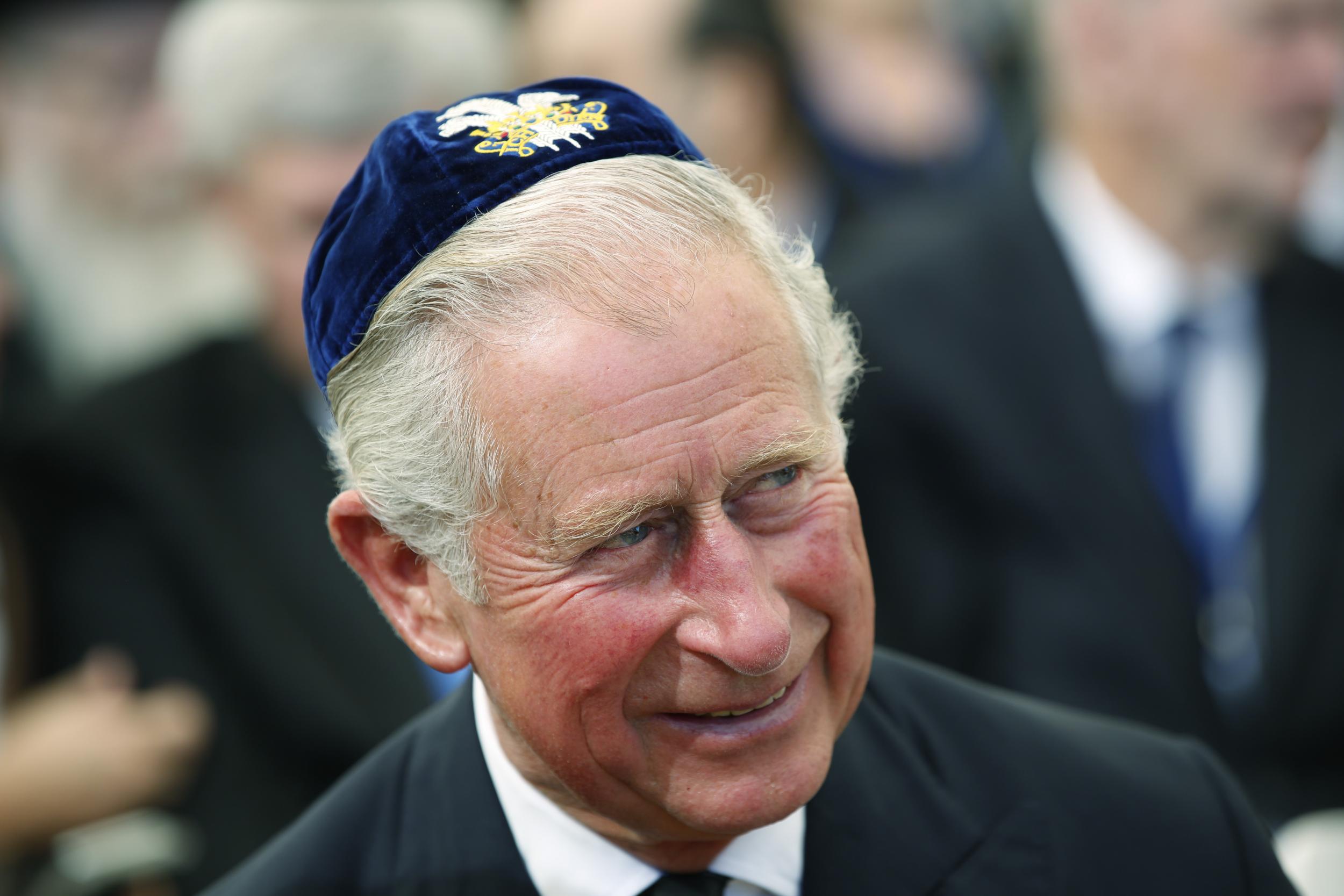British Royal 'to become family's first member to make state visit to Israel later this year'
The proposed trip would mark the centenary of the Balfour Declaration, which committed the UK to support the establishment of an Israeli state

Your support helps us to tell the story
From reproductive rights to climate change to Big Tech, The Independent is on the ground when the story is developing. Whether it's investigating the financials of Elon Musk's pro-Trump PAC or producing our latest documentary, 'The A Word', which shines a light on the American women fighting for reproductive rights, we know how important it is to parse out the facts from the messaging.
At such a critical moment in US history, we need reporters on the ground. Your donation allows us to keep sending journalists to speak to both sides of the story.
The Independent is trusted by Americans across the entire political spectrum. And unlike many other quality news outlets, we choose not to lock Americans out of our reporting and analysis with paywalls. We believe quality journalism should be available to everyone, paid for by those who can afford it.
Your support makes all the difference.The first state visit by a British Royal to Israel will go ahead this year, Whitehall sources have suggested.
The Royal Family has historically always rejected Israeli invitations for official state visits, although individual members have visited the country in a personal capacity, and attended state funerals.
Reuven Rivlin, the Israeli President, extended the invitation via Foreign Secretary Boris Johnson at a meeting in Jerusalem earlier this week.
The proposed visit would coincide with the 100th anniversary of the Balfour Declaration, a historic statement of commitment by the British government to support the establishment of a Jewish state in the Middle East.
“This is a very important year in the history of the relations between Israel and the United Kingdom,” Mr Rivlin said.
Theresa May recently told a meeting of the Conservative Friends of Israel that the Government would be actively celebrating the centenary of the Declaration.
“It demonstrates Britain’s vital role in creating a homeland for the Jewish people. And it is an anniversary we will be marking with pride”, Ms May said.
The Declaration was written by Liberal Foreign Secretary Minister Arthur Balfour, and committed the British Government to “[favour] the establishment in Palestine of a national home for the Jewish people.”
However, the document also stated: “Nothing shall be done which may prejudice the civil and religious rights of existing non-Jewish communities in Palestine”.
This remains a point of contention for the Palestinian community.
At the time of the declaration, Palestinians made up around 90 per cent of the population in what is now the state of Israel. After the establishment of the Israeli state in 1948 and the Arab-Israeli war which followed, an estimated 700,000 people fled or were expelled from their homes.
Pro-Palestinian academics have called on the British government to apologise for the “disastrous” role of the Balfour declaration, calling it “the biggest social injustice of our time”.
Ben Jamal, Director of the Palestine Solidarity Campaign, said:
"It is grossly inappropriate for the royal family to make an official visit to Israel 100 years after the Balfour declaration.
The consequences of this dispossession are still experienced by Palestinians today, whether living as unequal citizens within the state of Israel, as refugees or under military occupation.
The British government should be reflecting on its complicity in these events, offering an apology to the Palestinian people and putting pressure on Israel to abide by international law."
If a Royal visit does take place, the Queen is unlikely to be able to make the journey, as she has she cut back on most overseas travel for health reasons.
The Prince of Wales is more likely to make the trip, given his attendance at former Israeli President Shimon Peres’ funeral last year.
A spokesperson for Clarence House, the official residence of the Prince of Wales, told The Independent that the Prince of Wales’ overseas visits are only made at the request of the government.
They could not confirm whether the Prince would be visiting Israel.
However, they did point to the Prince’s “strong and growing relationship with the Jewish community”.
The Israeli Embassy in London declined to comment on the proposed visit.
Join our commenting forum
Join thought-provoking conversations, follow other Independent readers and see their replies
Comments